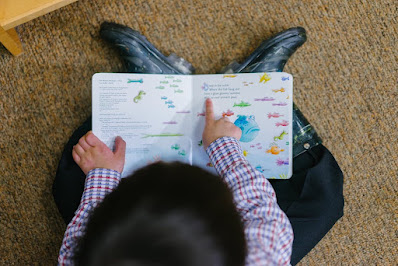
Before visiting a Montessori preschool, Chatsworth parents may believe that quiet time is an in-school break for the teachers and staff. Surprisingly, quiet can sometimes be one of the most active periods of the day, and the activities children are engaged in helps them to develop physically and mentally.
What is Quiet Time?
Quiet time replaces naptime as children grow into Montessori preschool. Chatsworth children need varying amounts of rest, and quiet time allows those who are more energetic to pursue their work and often takes place after physical activities so that all of the children gain a cool-down period. During quiet time, children are involved in many different types of primarily solo activities which offer an array of educational and developmental benefits.Quiet Time Activities for Math
Quiet math activities in Montessori preschool can be any type of quiet work that involves mathematical principles, including sorting, counting, stacking, and working with the magical mathematics of lego-style blocks. In many instances, the math itself is buried within the activity, so that the results are self-evident and emerge as the activity progresses.Quiet Time Activities for Reading and Writing
Quiet time is perfect for reading alone or taking part in individual writing activities. As with math, these activities may take many forms, and may include art instead of language as the means of communication. In addition to the academic benefits, working with puzzles or creating art also stimulates the development of fine motor skills and enhances critical thinking.Quiet Time Activities for Fine Motor Skills
Any activity that involves holding and manipulating small objects is beneficial in honing the fine motor skills of preschool students. This includes many of the activities used for math and reading, but extends to an even wider range of activities. As long as the child can remain engaged and doesn’t create a disturbance for others, they may choose.Quit time is important for a few reasons, and the activities Montessori preschool children engage in during quiet time address many aspects of childhood development. Far from a break period for the instructors, quiet time is a busy time where children pursue a wide variety of tasks.